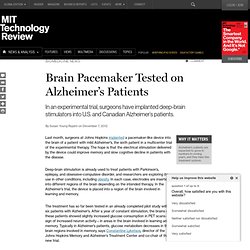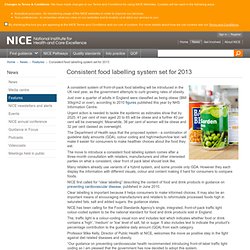

Are We Living Better With the Jawbone 'Up' Electronic Bracelet? You've probably read all the stories about how sitting for too long can kill you.

How prolonged sitting causes discomfort, numbness and spine misalignment. I have a new magic weapon — the newly relaunched Jawbone Up. If I've been sitting for too long at my desk in the Mashable newsroom I'll feel a slight vibration on my wrist — a gentle nudge. It's the Jawbone Up fitness bracelet I've been wearing for the past week, letting me know it's time to get up and take a little walk — I've been idle too long. At least, my body has. The Jawbone Up is a bracelet designed to help you learn to live a healthier lifestyle. It's designed to be worn all day and all night (more about that later) and with the help of the Up iOS app, it monitors and tracks your sleep, your movements or activity, your food, and your mood.
How it Works To track your activity, all you need to do is wear the bracelet. After a few false starts of trying to sync my data, I was able to get a good reading of my daily habits. Comfort. Are Warnings About Drug Side Effects Actually Making Us Sick? : The Crux. FDA Approves First-Ever Digestible Digital Pill. The era of digital medicine just got one step closer to reality.

The U.S. Food and Drug Administration (FDA) has for the first time approved a digestible device — a sand-particle sized microchip that can be embedded in drugs to monitor patients' response to treatment, according to a new report in Nature. Beer May Help Fight Off Viruses - Oddities News. December 8, 2012 redOrbit Staff & Wire Reports – Your Universe Online If you’re looking to fight off cold-like symptoms during the winter or trying to find a way to keep from contracting a serious respiratory illness this year, you might want to pop the top on a cold one, according to new research coming out of Sapporo Medical University in Japan. The study, which was funded by Tokyo-based beer maker Sapporo Breweries, has discovered humulone — a chemical compound that can be found in hops — was effective in battling off the respiratory syncytial (RS) virus, the Huffington Post reported on Friday.
Brain Pacemaker May Treat Alzheimer’s. Last month, surgeons at Johns Hopkins implanted a pacemaker-like device into the brain of a patient with mild Alzheimer’s, the sixth patient in a multicenter trial of the experimental therapy.

The hope is that the electrical stimulation delivered by the device could improve memory and slow cognitive decline in patients with the disease. Deep-brain stimulation is already used to treat patients with Parkinson’s, epilepsy, and obsessive-compulsive disorder, and researchers are exploring its use in other conditions, including obesity. In each case, electrodes are inserted into different regions of the brain depending on the intended therapy. In the Alzheimer’s trial, the device is placed into a region of the brain involved in learning and memory.
Using Social Media to Educate and Empower Patients. Fighting the flab means fighting makers of fatty foods - 26 November 2012. Read full article Continue reading page |1|2 A YEAR ago in these pages, I congratulated the Danish government on its revolutionary experiment.

It had just implemented a world-first fiscal and public health measure - a tax on food products containing more than 2.3 per cent saturated fat. This experiment has now been dropped. Under intense pressure from the food industry in an already weak economy, the Danish government has repealed the fat tax and abandoned an impending tax on sugars. Nobody likes taxes, and the fat tax was especially unpopular among Danish consumers, who resented having to pay more for butter, dairy products and meats - foods naturally high in fat. Business as Usual harms global air quality. Green infrastructure in street canyons could reduce air pollution.
Breast Cancer UK launches petition to ban BPA. A UK charity has launched a petition urging the country’s government to ‘take the lead’ and ban bisphenol A (BPA) and endocrine disrupting chemicals in food and drink packaging.

The call came on the same day European Food Safety Authority (EFSA) concluded a meeting involving 18 states, including the UK, aimed at providing an update ahead of the body’s risk assessment on BPA due by May 2013. Breast Cancer UK spearheaded a campaign in 2010 which led to the ban of BPA in baby bottles throughout the EU in 2011. The Baffling Nexus of Climate Change and Health. Associated PressA plane sprayed insecticide over Dallas last month to kill mosquitoes and limit the spread of West Nile virus.

In 2004, a rare tropical fungus caused a string of respiratory failures and neural disorders along the Pacific Northwest coast, baffling the health community. That same year, Alaskan cruise ship passengers dining on local oysters fell sick with a gastric virus typically found in warm water estuaries. Now Texas, after an unusually wet spring and dry summer, is battling what may become the country’s worst recorded outbreak of West Nile virus.
Meteorological and ecological shifts driven by climate change are creating a slow and often unpredictable bloom of novel public health challenges across the United States. The American Public Health Association has declared climate change “one of the most serious public health threats facing our nation,” although the precise nature of that threat remains uncertain. The short-term challenge, Dr. (5) Consistent food labelling system set for 2013. A consistent system of front-of-pack food labelling will be introduced in the UK next year, as the government attempts to curb growing rates of obesity.

Just over a quarter of adults in England were classified as being obese (BMI 30kg/m2 or over), according to 2010 figures published this year by NHS Information Centre. Urgent action is needed to tackle the epidemic as estimates show that by 2020, 41 per cent of men aged 20 to 65 will be obese and a further 40 per cent will be overweight. Meanwhile, 36 per cent of women will be obese and 32 per cent classed as overweight.
The rise and rise of allergies. 23 February 2011Last updated at 12:16 By James Gallagher Health reporter, BBC News Allergies are becoming more common There is little doubt within the medical profession that the number of allergies in the UK is increasing.
